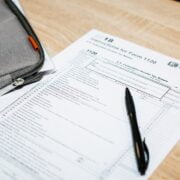
Maximizing Your Profit: Tips for Successful Rental Property Management
The rental market can be a lucrative investment opportunity for those who understand how to effectively manage their properties. With the potential for consistent income and long-term profitability, it is essential for property owners to have a comprehensive understanding of the rental market and implement strategies that will maximize their returns. This article will provide an in-depth guide to successful rental property management, covering everything from understanding the rental market to managing tenant complaints and maximizing tax benefits.
Key Takeaways
- Understanding the rental market is crucial for identifying profitable opportunities.
- Setting realistic rent is important for balancing income and occupancy rates.
- Tenant screening is necessary for selecting reliable renters for long-term profitability.
- Property maintenance is essential for keeping your investment in top condition.
- Cost-effective upgrades can enhance your property’s value and appeal.
Understanding the Rental Market: Identifying Opportunities for Profit
Before diving into rental property management, it is crucial to thoroughly research the local rental market. This includes understanding the demand for rental properties in the area, as well as the average rental rates and competition. By conducting thorough market research, property owners can identify opportunities for profit and make informed decisions about their investment.
In addition to researching the rental market, it is important to identify the target renters and their needs. This includes understanding their preferences, such as location, amenities, and size of the property. By catering to the needs of the target renters, property owners can attract quality tenants and maximize their occupancy rates.
Setting Realistic Rent: Balancing Income and Occupancy Rates
Setting a realistic rent rate is essential for balancing income and occupancy rates. Property owners must calculate their expenses, including mortgage payments, property taxes, insurance, maintenance costs, and any other associated expenses. By accurately calculating these expenses, property owners can determine a profitable rent rate that covers their costs while still remaining competitive in the market.
Balancing income and occupancy rates is crucial for maximizing profitability. While it may be tempting to set a high rent rate to maximize income, this can lead to longer vacancy periods and ultimately result in lower overall profitability. Property owners must find a balance between setting a competitive rent rate that attracts tenants and generates consistent income, while also maintaining high occupancy rates.
It is important to regularly review and adjust rent rates based on market changes. If the rental market becomes more competitive or if there is an increase in expenses, property owners may need to adjust their rent rates to remain profitable. By staying informed about market trends and regularly reviewing rent rates, property owners can ensure they are maximizing their profitability.
Tenant Screening: Selecting Reliable Renters for Long-Term Profitability
| Metrics | Description |
|---|---|
| Eviction Rate | The percentage of tenants who have been evicted from the property. |
| Credit Score | The numerical representation of a tenant’s creditworthiness. |
| Income Verification | The process of verifying a tenant’s income to ensure they can afford the rent. |
| Criminal Background Check | The process of checking a tenant’s criminal history to ensure they do not pose a threat to the property or other tenants. |
| Reference Check | The process of contacting a tenant’s previous landlords to verify their rental history. |
| Lease Renewal Rate | The percentage of tenants who renew their lease at the end of their rental term. |
Tenant screening is a critical step in rental property management. Selecting reliable renters is essential for long-term profitability and minimizing potential issues. Property owners should conduct thorough background and credit checks to assess the financial stability and reliability of potential tenants.
In addition to background and credit checks, it is important to verify employment and rental history. This can provide insight into a tenant’s ability to pay rent on time and their track record as a responsible tenant. By conducting comprehensive tenant screenings, property owners can minimize the risk of late payments, property damage, and other potential issues.
Property Maintenance: Keeping Your Investment in Top Condition
Regular property inspections and maintenance are essential for keeping rental properties in top condition. Property owners should conduct regular inspections to identify any repairs or maintenance needs. By addressing these issues promptly, property owners can prevent further damage and ensure the longevity of their investment.
Addressing repairs and issues promptly is crucial for maintaining positive tenant relationships. Tenants appreciate responsive landlords who take care of maintenance issues in a timely manner. By prioritizing property maintenance, property owners can foster positive tenant relationships and minimize turnover.
Curb appeal is also an important aspect of property maintenance. A well-maintained exterior can attract quality tenants and increase the overall value of the property. Property owners should invest in landscaping, exterior painting, and other improvements that enhance the curb appeal of their rental properties.
Cost-Effective Upgrades: Enhancing Your Property’s Value and Appeal
Identifying cost-effective upgrades can significantly enhance the value and appeal of rental properties. Upgrading appliances and fixtures can attract quality tenants and justify higher rent rates. Property owners should consider investing in energy-efficient appliances, modern fixtures, and other upgrades that will appeal to potential renters.
Enhancing outdoor spaces can also increase the value and appeal of rental properties. Property owners should consider adding outdoor amenities such as a patio, deck, or landscaping to create an inviting outdoor space for tenants. These upgrades can attract quality tenants and justify higher rent rates.
Efficient Advertising: Attracting Quality Tenants and Minimizing Vacancies
Effective advertising is crucial for attracting quality tenants and minimizing vacancies. Property owners should utilize online platforms and social media to reach a wider audience of potential renters. By creating compelling property listings with high-quality photos and detailed descriptions, property owners can attract quality tenants and minimize vacancy periods.
Highlighting property features and amenities is also important in advertising. Property owners should emphasize the unique selling points of their rental properties, such as location, amenities, and any recent upgrades. By effectively showcasing these features, property owners can attract quality tenants who are willing to pay higher rent rates.
Rent Collection Strategies: Ensuring Timely Payments and Minimizing Losses
Establishing clear rent collection policies is essential for ensuring timely payments and minimizing losses. Property owners should clearly communicate their expectations regarding rent payment due dates, late fees, and acceptable payment methods. By setting clear expectations from the beginning, property owners can minimize the risk of late payments and delinquencies.
Offering multiple payment options can also facilitate timely rent payments. Property owners should consider accepting online payments, direct deposits, or automatic bank transfers to make it easier for tenants to pay their rent on time. By offering convenient payment options, property owners can streamline the rent collection process and minimize the risk of late payments.
Addressing late payments and delinquencies promptly is crucial for minimizing losses. Property owners should have a clear process in place for addressing late payments, including sending reminders and issuing late fees. By addressing these issues promptly, property owners can encourage timely payments and minimize the risk of financial losses.
Lease Renewals: Retaining Good Tenants and Avoiding Turnover Costs
Lease renewals are an important aspect of rental property management. Retaining good tenants is essential for avoiding turnover costs and maintaining consistent income. Property owners should prioritize lease renewals by offering incentives to tenants who choose to renew their leases, such as rent discounts or upgrades.
Addressing tenant concerns and needs is also crucial for lease renewals. Property owners should maintain open lines of communication with tenants and address any issues or concerns promptly. By demonstrating a commitment to tenant satisfaction, property owners can increase the likelihood of lease renewals and minimize turnover costs.
Managing Tenant Complaints: Resolving Issues and Maintaining Positive Relationships
Addressing tenant complaints promptly is essential for maintaining positive tenant relationships and minimizing potential issues. Property owners should have a clear process in place for handling tenant complaints, including a designated point of contact and a timeline for resolution. By addressing complaints in a timely manner, property owners can maintain positive tenant relationships and minimize the risk of escalated issues.
Resolving issues and maintaining positive relationships with tenants is crucial for long-term profitability. Happy tenants are more likely to renew their leases, recommend the property to others, and take care of the property. By prioritizing tenant satisfaction, property owners can minimize turnover costs and maximize their profitability.
Importance of communication and transparency cannot be overstated in rental property management. Property owners should maintain open lines of communication with tenants, providing regular updates on maintenance requests, lease renewals, and any other relevant information. By fostering transparent communication, property owners can build trust with their tenants and maintain positive relationships.
Accounting and Record-Keeping: Staying Organized and Maximizing Your Tax Benefits
Accurate accounting and record-keeping are essential for staying organized and maximizing tax benefits. Property owners should track all expenses and income associated with their rental properties, including repairs, maintenance, property management fees, and rental income. By maintaining detailed records, property owners can accurately assess their profitability and maximize their tax benefits.
Tracking expenses and income is crucial for accurately calculating profitability and assessing the financial health of rental properties. Property owners should utilize accounting software or hire a professional accountant to ensure accurate record-keeping. By staying organized and maintaining accurate records, property owners can make informed decisions about their rental properties and maximize their profitability.
Maximizing tax benefits is another important aspect of rental property management. Property owners should consult with a tax professional to ensure they are taking advantage of all available deductions and credits. By maximizing their tax benefits, property owners can increase their overall profitability and minimize their tax liability.
Successful rental property management requires a comprehensive understanding of the rental market and the implementation of effective strategies. By thoroughly researching the local rental market, setting realistic rent rates, conducting thorough tenant screenings, prioritizing property maintenance, implementing cost-effective upgrades, utilizing efficient advertising techniques, establishing clear rent collection policies, prioritizing lease renewals, addressing tenant complaints promptly, maintaining accurate accounting and record-keeping, property owners can maximize their profitability and achieve long-term success in the rental market. It is important for property owners to continuously educate themselves and adapt to market changes in order to stay ahead in the competitive rental market.
If you’re looking to maintain a healthy lifestyle while managing your rental property, you might find this article on “Fueling Your Body: The Key Nutrients for Achieving Optimal Physical Health and Vitality” helpful. It explores the importance of nutrition in supporting overall well-being and provides valuable insights into the essential nutrients your body needs to thrive. Check it out here for tips on how to fuel your body for long-term success.
FAQs
What is a rental property?
A rental property is a real estate property that is owned by an individual or a company and is rented out to tenants for a specified period of time in exchange for rent payments.
What are the types of rental properties?
There are different types of rental properties, including single-family homes, multi-family homes, apartments, condos, townhouses, and commercial properties.
What are the benefits of owning a rental property?
Owning a rental property can provide a steady stream of income, tax benefits, and long-term appreciation of the property’s value.
What are the responsibilities of a landlord?
A landlord is responsible for maintaining the property, ensuring it is habitable, collecting rent payments, and addressing any issues or concerns raised by tenants.
What are the rights of a tenant?
A tenant has the right to a safe and habitable living space, privacy, and protection from discrimination. They also have the right to request repairs and maintenance from the landlord.
How is rent determined for a rental property?
Rent for a rental property is typically determined by the market value of the property, location, amenities, and demand for rental properties in the area.
What is a lease agreement?
A lease agreement is a legal contract between a landlord and a tenant that outlines the terms and conditions of the rental agreement, including rent payments, lease duration, and responsibilities of both parties.
What is a security deposit?
A security deposit is a sum of money paid by the tenant to the landlord at the beginning of the lease term to cover any damages or unpaid rent at the end of the lease. It is typically refundable if the property is returned in good condition.


















